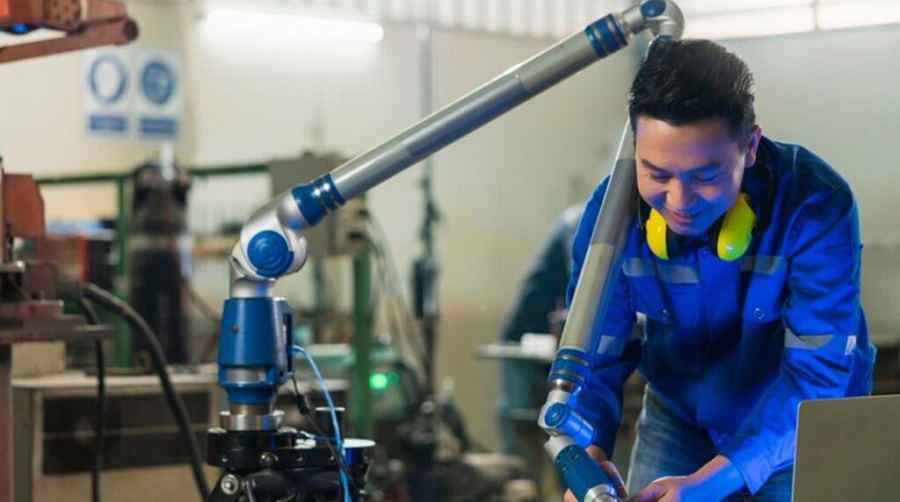In electronics manufacturing, companies are constantly looking for ways to accelerate the product development cycle. The faster a product can move from concept to the hands of consumers, the better the competitive advantage. One of the most effective strategies for achieving this speed is leveraging turnkey manufacturing services. Turnkey manufacturing offers a comprehensive solution where a single provider manages all aspects of the production process, from design and prototyping to final assembly and delivery. This approach drastically reduces the time-to-market for electronics while maintaining quality and optimizing costs.
This article explores how turnkey manufacturing services help reduce time-to-market, the benefits they offer in streamlining production, and the impact this has on the competitive edge of electronics companies.
What is Turnkey Manufacturing?
Turnkey manufacturing refers to a process where a manufacturer takes full responsibility for a product’s development and production. This includes everything from sourcing materials, producing components, and assembling the final product, to performing quality control, packaging, and shipping. The customer only needs to provide the initial specifications or design, and the turnkey manufacturer handles the rest, delivering the final product ready for market.
This comprehensive, end-to-end approach contrasts with traditional manufacturing methods where companies might work with multiple suppliers and contractors for different stages of the production process. With turnkey manufacturing, all aspects of production are handled by one provider, significantly simplifying and streamlining the process.
Benefits of Turnkey Manufacturing in Reducing Time-to-Market
Turnkey manufacturing services can greatly reduce the time-to-market for electronics by streamlining various stages of product development and eliminating bottlenecks that typically slow down the production process. Here are several key benefits that help speed up the journey from concept to market:
1. Streamlined Communication and Coordination
One of the biggest time sinks in traditional manufacturing processes is managing communication between multiple vendors, designers, suppliers, and assembly teams. Each phase of production may involve a different contractor, each with their own schedules, processes, and points of contact. This can lead to miscommunication, delays, and increased complexity in project management.
Turnkey manufacturing solves this problem by consolidating all of these functions under a single provider. With a dedicated project manager overseeing the entire process, communication is streamlined, and decisions can be made quickly. This reduces the time spent coordinating between different vendors and allows for more seamless transitions between the various phases of production, such as design, sourcing, and assembly.
2. Faster Prototyping and Design Iteration
In electronics manufacturing, time-to-market is heavily influenced by how quickly prototypes can be developed and tested. The traditional approach often involves separate design firms and manufacturing contractors, which can slow down the prototyping process due to the need for frequent revisions and feedback loops between the two entities.
Turnkey manufacturers often have in-house design and engineering teams that work closely with the production floor. This proximity allows for quicker iterations of prototypes, as engineers can quickly implement changes and run tests without the delays associated with outsourcing or third-party coordination. By shortening the design-prototype-test cycle, companies can finalize product designs much faster and move to full-scale production sooner.
3. Optimized Supply Chain Management
Sourcing materials and components is a critical phase in electronics manufacturing that can significantly affect the overall timeline. Working with multiple suppliers can lead to delays due to misalignment in production schedules, shipping issues, or material shortages.
Turnkey manufacturers usually have established relationships with a reliable network of suppliers, which allows them to procure materials more efficiently. By managing the entire supply chain, turnkey manufacturers can anticipate and address potential delays before they affect the overall timeline. In addition, many turnkey manufacturers can take advantage of economies of scale to negotiate better prices and delivery schedules, which further accelerates the production process.
4. Integrated Quality Control and Testing
Quality control is a crucial aspect of electronics manufacturing, and defects discovered late in the production process can cause significant delays. In a traditional manufacturing setup, products might be tested only after assembly is complete, leading to potential rework or even redesign if major issues are found.
Turnkey manufacturers integrate quality control throughout the entire production process. This includes testing components as they are sourced, performing inspections during assembly, and conducting functional testing of the final product. By embedding quality control at every stage, defects are identified and corrected early, preventing costly rework and ensuring that the final product is ready for market without unnecessary delays.
5. Reduced Logistics and Shipping Time
In traditional manufacturing models, once a product is assembled, it often needs to be shipped to another location for additional work such as packaging or distribution. This adds unnecessary time to the production schedule.
With turnkey manufacturing, all aspects of production, including packaging and distribution, are handled in one location or by a single provider. This eliminates the need for additional shipping between different production phases, reducing the overall timeline and logistics complexity. Turnkey manufacturers often have integrated distribution capabilities, allowing them to ship products directly to retailers or customers, further reducing time-to-market.
Case Study: How Turnkey Manufacturing Accelerates Electronics Production
To illustrate the effectiveness of turnkey manufacturing, consider a hypothetical example of an electronics company developing a new consumer product, such as a smart home device. In a traditional manufacturing setup, the company would first engage a design firm to create the product’s blueprint. Once the design is finalized, they would contract a separate manufacturer to source the components and assemble the device. Each of these phases might require working with multiple vendors, resulting in weeks or even months of coordination.
However, by partnering with a turnkey manufacturer, the company can shorten this process. The turnkey provider would manage everything from refining the initial design and sourcing components to prototyping, assembly, and testing. As a result, the entire production timeline could be cut in half, with the product reaching the market much sooner.
In this scenario, the turnkey manufacturer’s ability to manage the supply chain, integrate design and production, and perform continuous testing ensures that the product not only hits the market faster but also meets quality standards.
Conclusion
Turnkey manufacturing services are a powerful tool for reducing time-to-market in electronics manufacturing. By consolidating design, production, quality control, and distribution under one roof, turnkey manufacturers eliminate many of the delays and bottlenecks inherent in traditional manufacturing models. This streamlined approach enables electronics companies to get their products to market faster, giving them a competitive edge in a fast-moving industry. The integration of prototyping, supply chain management, and quality control within turnkey manufacturing not only accelerates production but also ensures that the final product meets high standards of quality and performance.



